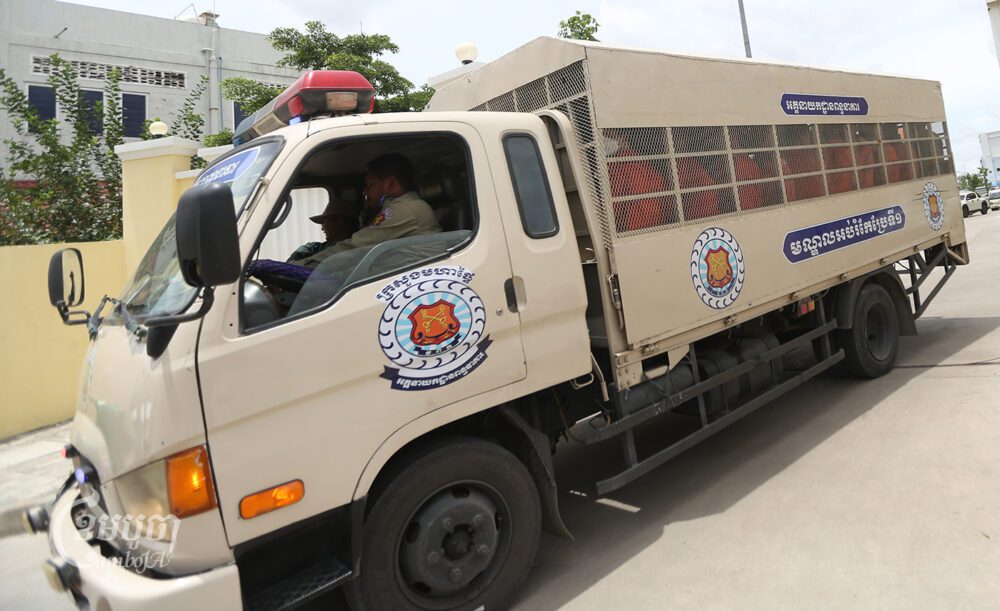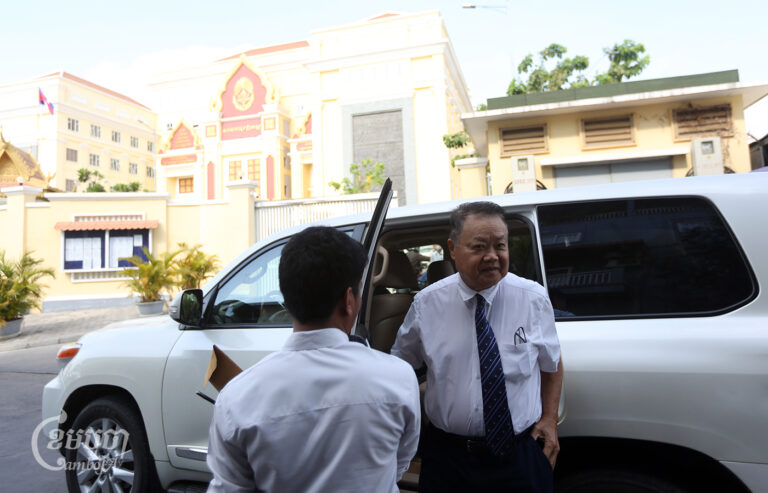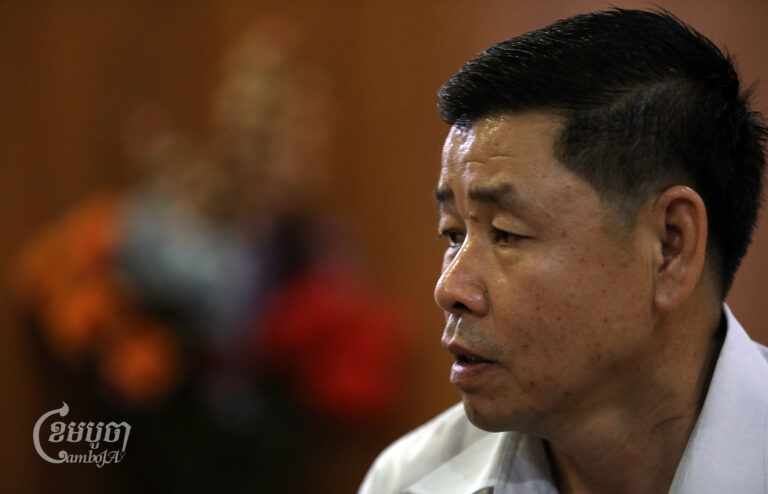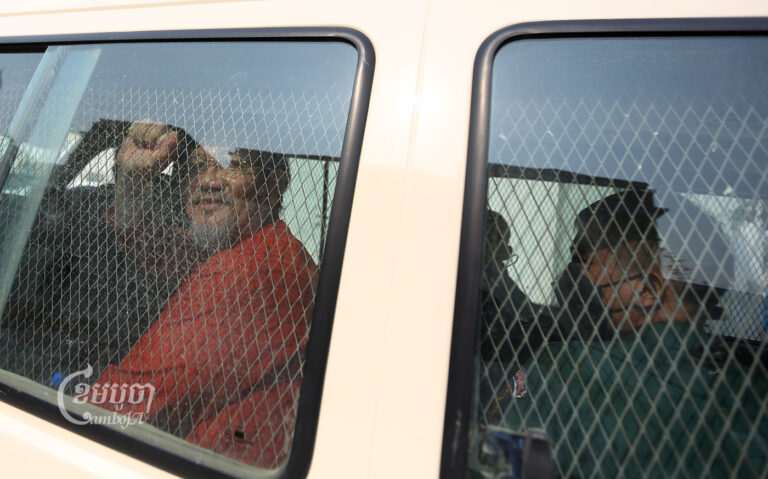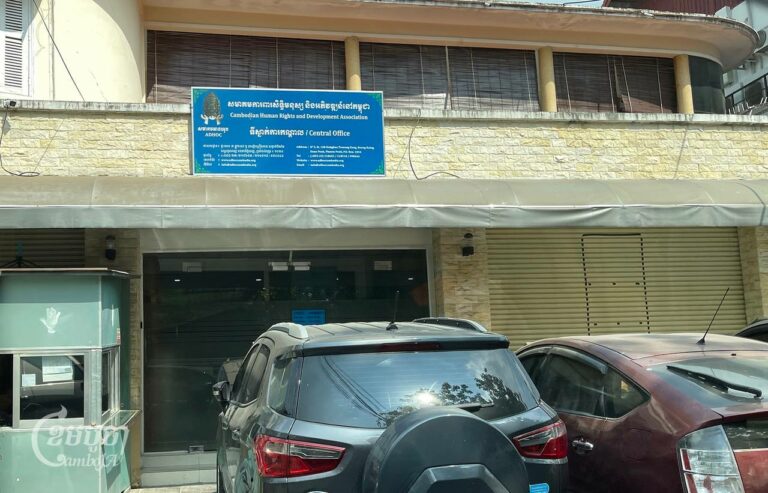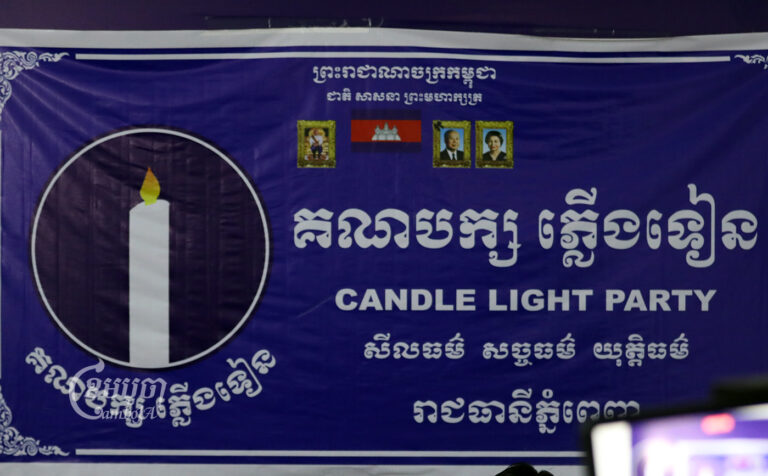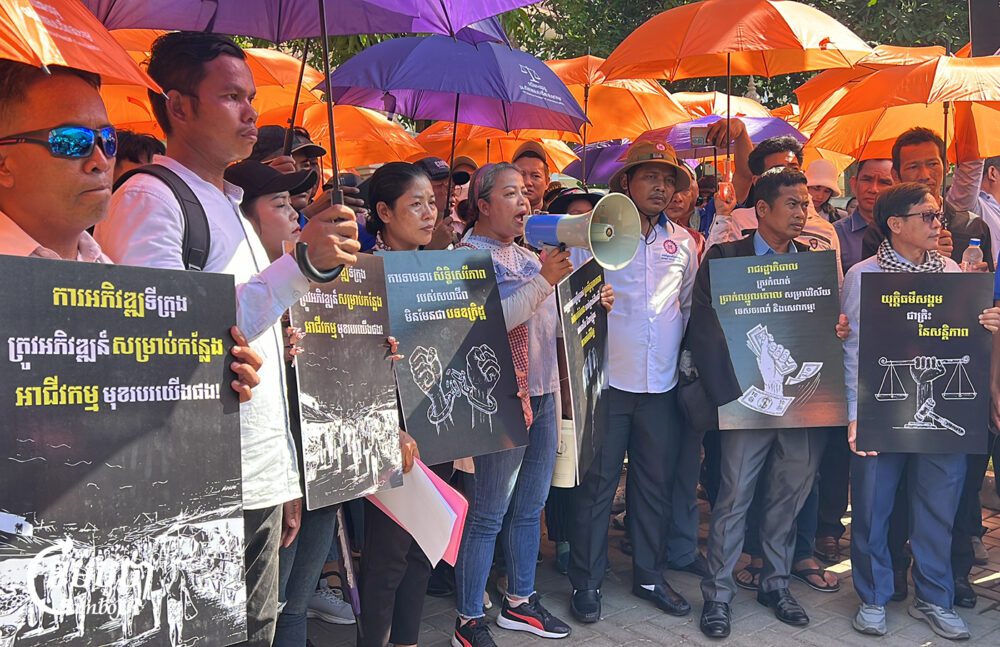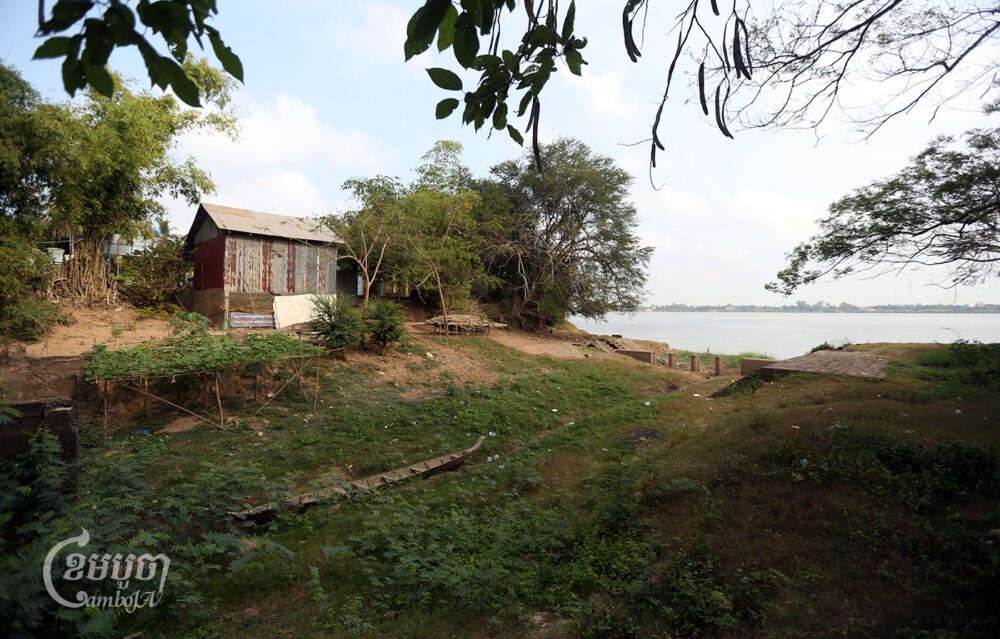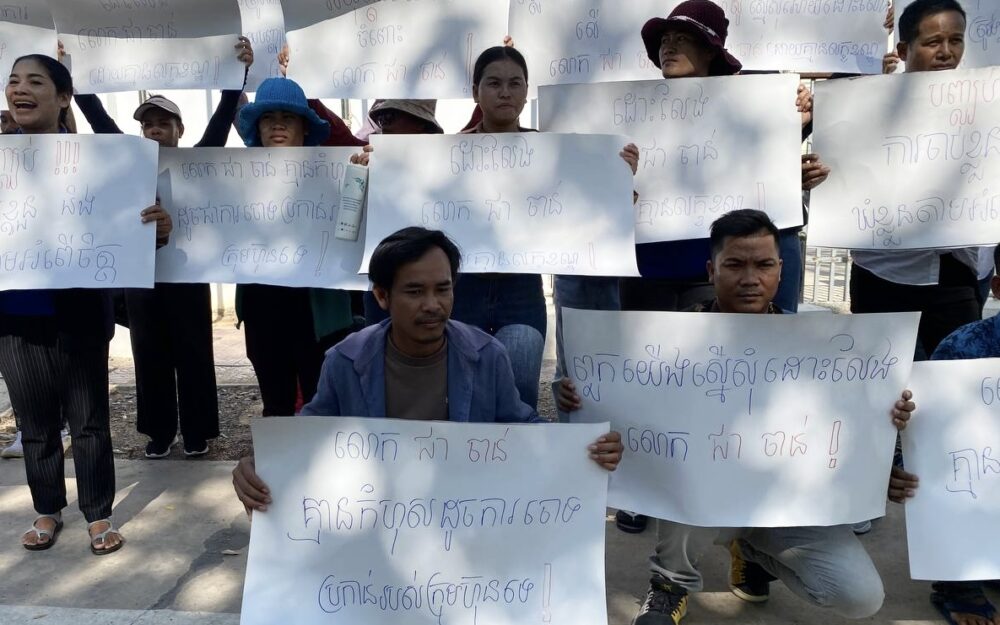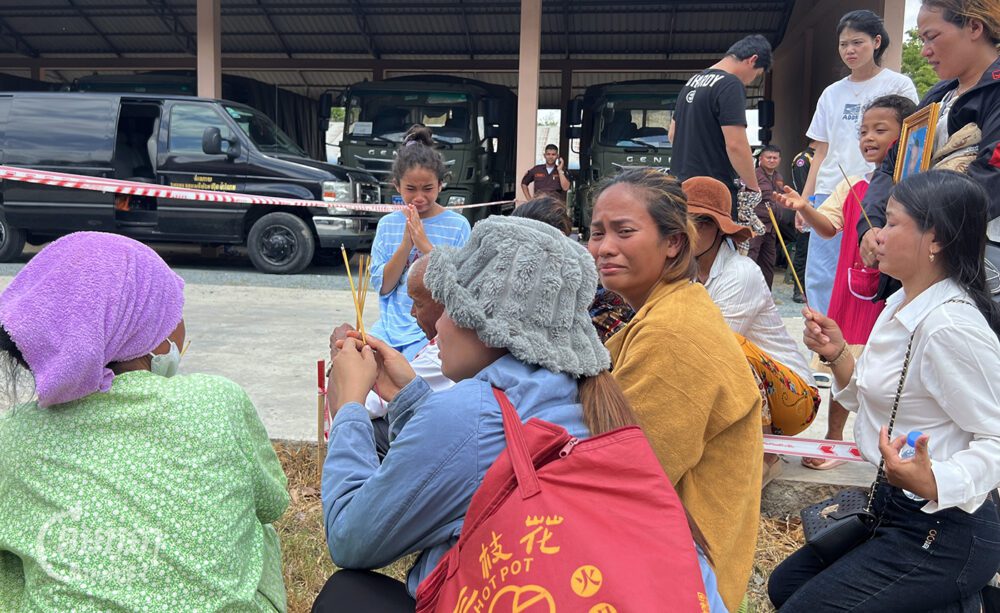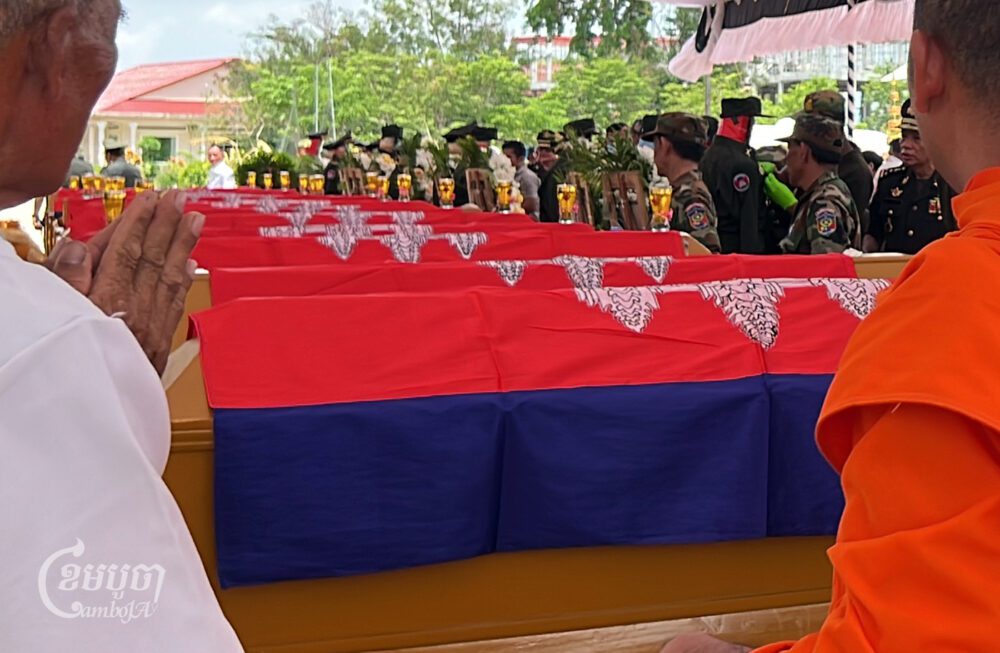Lawyers for Candlelight Party Vice President Thach Setha, who faces prison time for allegedly issuing bad checks, claimed prosecutors were relying on “fake” evidence during closing arguments at Phnom Penh Municipal Court on Wednesday.
Setha faces a two to five year prison sentence and a maximum penalty of 10 million riel ($2,437), under Article 231 of the Law on Negotiable Instruments and Payment Transactions.
The verdict is scheduled to be announced on September 21. Setha, who was denied bail, has been detained since January.
Setha was arrested in January for allegedly issuing five bad checks in 2019 and for failing to appear before an investigating judge in 2021 to address a complaint filed by the recipient of the checks, Rin Chhay pawnshop owner Hay Vanrin.
Voice of Democracy reported that Vanrin has made donations to an association where Prime Minister Hun Manet’s wife holds a leadership position, as well as having business ties to the ruling CPP. Commerce Ministry records list Vanrin as chairman of Dynith Commercial, which includes Dy Sokhey as a director. She is the wife of Prime Minister Hun Manet’s brother Hun Manith. Vanrin could not be reached for comment.
During closing arguments, Setha denied all accusations and said he never issued the checks. He had initially received an $18,000 loan from the pawnshop, collateralized with a land title under his name for a property belonging to the Khmer Kampuchea Krom Community, an association he runs as president.
Setha’s lawyers have previously said that he provided Vanrin with a series of signed checks with the date and amount left blank to allow the pawnshop owner to fill in later and complete monthly payments. But when the CNRP was dissolved by court order in 2017, Setha, then an elected CNRP representative, lost his National Assembly position and salary. Setha claims he told Vanrin he would pay him in cash privately, but some checks remained in Vanrin’s possession.
“The checks were issued in 2019, why had they just arrested him in 2023?” asked Setha’s lawyer Sam Sokhong.
Deputy prosecutor Plang Sophal claimed Setha had written the checks, sharing photo copies of the checks which included Setha’s signature. Sophal also shared a letter from the institution issuing the checks, Foreign Trade Bank (FTB), stating that Setha’s account had “no funds” when the checks were written.
“The defendant committed offense on negotiable instruments and payment, please the judge consider punishment according to the law,” Sophal said.
The plaintiff’s lawyer, Ly Pattry, said that Setha owed his client $33,400 when accounting for interest. Pattry cited the FTB bank document, and said his client requested an additional $20,000.
“There are enough elements of evidence to please the judge to punish the defendant for charging negotiable instruments and payment transactions,” he said.
Standing alone with an orange uniform identifying him as the accused person, Setha requested the judge drop all charges. He said he had never issued the checks, which he noted were only copies. The court rejected Setha’s repeated requests to present the original checks throughout his trial.
“We are upholding Buddhist religion, please judge, adhere to morality and render justice for freedom and respect human rights,” Setha said.
Setha’s defense lawyer, Son Chumchoun, said that five bad checks “were fake” and demanded the court and the plaintiff lawyers’ share the original checks.
“The checks taken to accuse Thach Setha were fake checks and for the sake of purity, the plaintiffs should bring the original checks back,” Chumchoun said.
Another defense lawyer for Setha, Choung Choungy, argued that the five copies of the checks and bank statements unsigned by Setha could not be used as evidence.
“The bank statement did not have his signature [Thach Setha] and a copy document could not be used as evidence,” he said. “Taking checks or photocopy of evidence to accuse my client is a fraudulent trick.”
The plaintiff’s lawyer, Tim Sopheap, replied that all the evidence needed to prove the case of Setha issuing bad checks was the FTB letter stating Setha had no funds in his account.
“It is not necessary to discuss checks [original checks] because the bank has issued the letter verifying that his bank account had no funds in 2019,” she said.
An email sent to the address listed on FTB’s website bounced and when CamboJA contacted the bank’s call center, an employee declined to connect CamboJA with a spokesperson.
Candlelight Spokesperson Kimsour Phearith said he hoped the court would acquit Setha because the root causes of the case were in a civil dispute that has now become politicized.
“It is difficult to say [drop the charge] because it is involved with politics,” he said.


